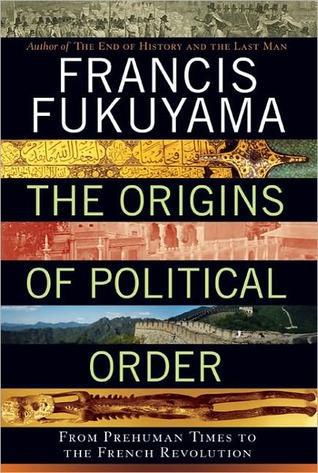
The Origins of Political Order
From Prehuman Times to the French Revolution
کتاب های مرتبط
- اطلاعات
- نقد و بررسی
- دیدگاه کاربران
نقد و بررسی

Starred review from January 24, 2011
The evolving tension between private and public animates this magisterial history of the state. In his hominids-to-guillotines chronicle of humanity's attempts to build strong, accountable governments that adhere to the rule of law, international relations scholar Fukuyama (The End of History) advances two themes: the effort to create an impersonal state free from family and tribal allegiances, and the struggle—often violent—against wealthy elites who capture the state and block critical reforms. Fukuyama's multifaceted comparative approach grounds politics and government in the demands of biology, geography, war, and economics, and pays appropriately lavish attention to China (he styles the Qin Dynasty of 221 B.C.E. the world's first modern state), India, and the Islamic countries. A neo-Hegelian, he's especially trenchant on the importance of ideology—especially religious beliefs—as an autonomous instigator of social and political change. (He cogently ascribes Europe's distinctively individualistic culture to the medieval Catholic Church's "assault on kinship.") Fukuyama writes a crystalline prose that balances engaging erudition with incisive analysis. As germane to the turmoil in Afghanistan as it is to today's congressional battles, this is that rare work of history with up-to-the-minute relevance.

November 1, 2010
The man who gave us The End of History and the Last Man now goes back to the beginning of human society in this first of a two-parter. Fukuyama shows how central government and subsequently the concept of accountability evolved, then argues that these two factors are absent or just not functioning in some developing countries--with disastrous consequences. Should stir plenty of debate.
Copyright 2010 Library Journal, LLC Used with permission.

























دیدگاه کاربران